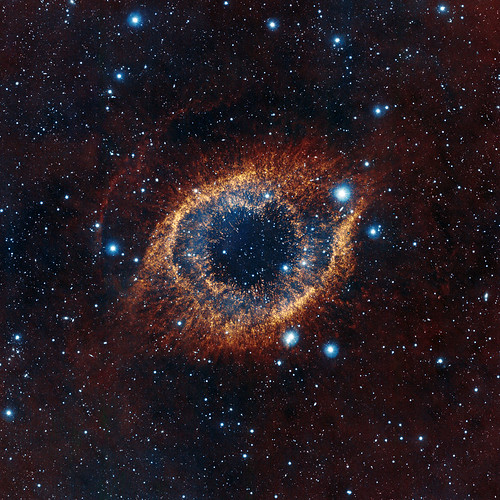On Dynamics of Cats, Steinn Sigurðsson sifts through Hubble's vast catalog of stars, gas, and galaxies, looking for a diamond in the rough. Many images captured by the Hubble Space Telescope have never really been looked at; Sigurðsson says "In some cases the PI died before doing so. More usually these are engineering test images, or 'parallel images,' where a second camera was set to take images of wherever it happened to be pointed." The European Space Agency wants your help to search through these pictures. In 2004, Hubble resolved the famous Ultra Deep-Field with 10,000 galaxies across three black arc-minutes of space. On Starts With a Bang, Ethan Siegel leads us through a new image of 200,000 galaxies produced by a telescope called VISTA. VISTA combined over 6000 exposures of a section of sky "about eight times the area of the full moon," or about 800 times the area of Hubble's UDF. Siegel says "the only remarkable thing about this patch of space is how unremarkable it was!" And there's a lot more where that came from.
- Log in to post comments


